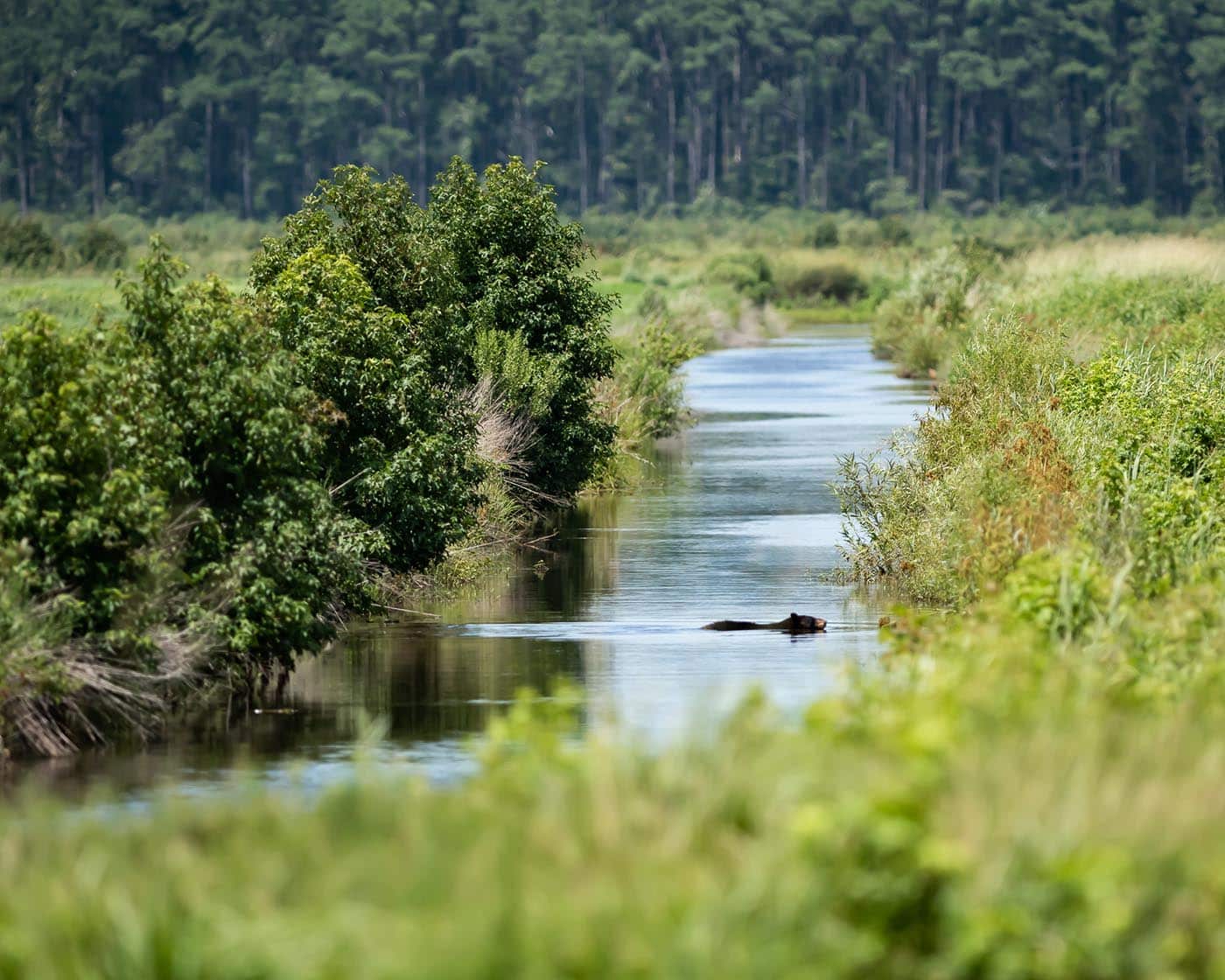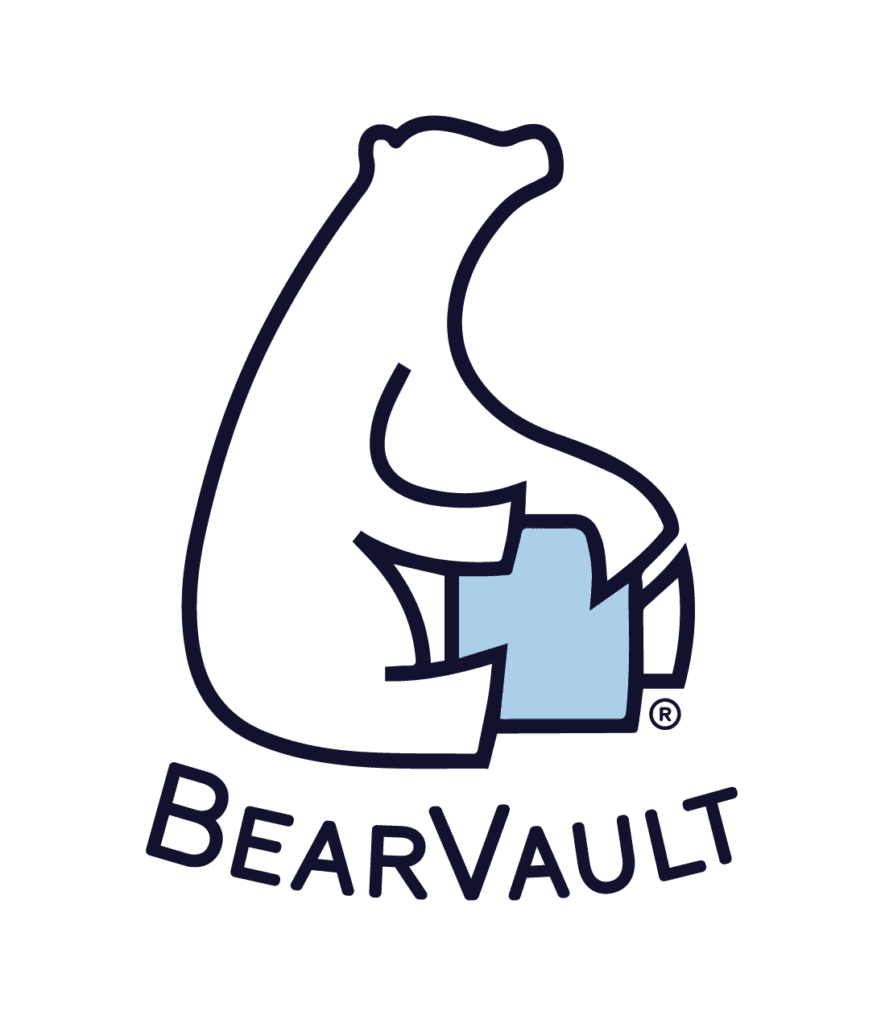How To Stay Safe in Bear Country by Knowing What Black Bears Eat
In May of 2021 a black bear was seen in the college town of Norman, Oklahoma. The yearling took to a tree late at night after being startled by a neighborhood resident. Unfortunately, that incident ended with the bear having to be dispatched by state wildlife officials after resisting sedation and initiating contact with humans.
While it was never determined how or why that black bear made it to the middle of a densely populated town, one well-recorded fact is that food is a driving force in many animal behaviors. Whether in urban settings or campgrounds, food is often the magnet drawing two species together.
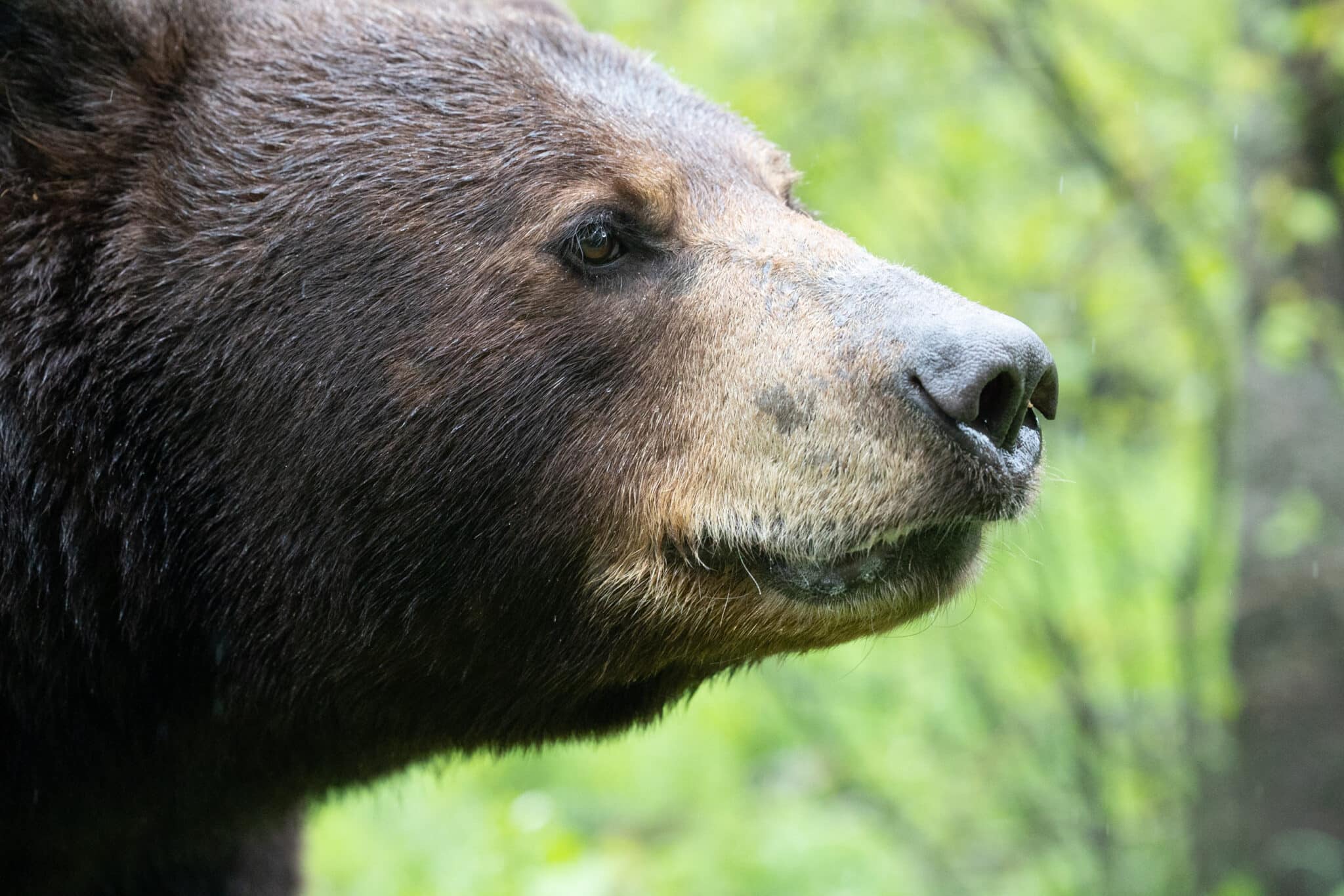
Bears use their powerful sense of smell to find food
Knowing what black bears eat may not seem like something worth an entire blog post. Just give me the list, you might be thinking.
But knowledge is power.
Black bears make up the vast majority of the bear population in North America, with a population of roughly 600,000. Their territory extends throughout most of the United States, all of Canada, and even some of Mexico. Chances are, if you’re in North America, you’ll spend some time in their territory! You’re more likely to meet one of these furry friends in the wild than any other type of bear.
Many people won’t ever have to leave their neighborhood to see one. The expansion of housing developments into previously rural areas is slowly driving bears to embrace their new existence alongside humans. That has led to plenty of bear sightings in communities you wouldn’t normally call “bear territory”, like Norman.
Knowing what black bears eat will help you understand and, ultimately, live in harmony with them.
Black Bears Are Omnivores
Black bears keep to a diet of mixed calorie sources. No red-meat-only, vegan, or keto over here. They like to mix things up! What they eat when is typically driven by seasonal changes and what’s ripe and readily available. They follow their wild, natural surroundings and consume what’s on hand.
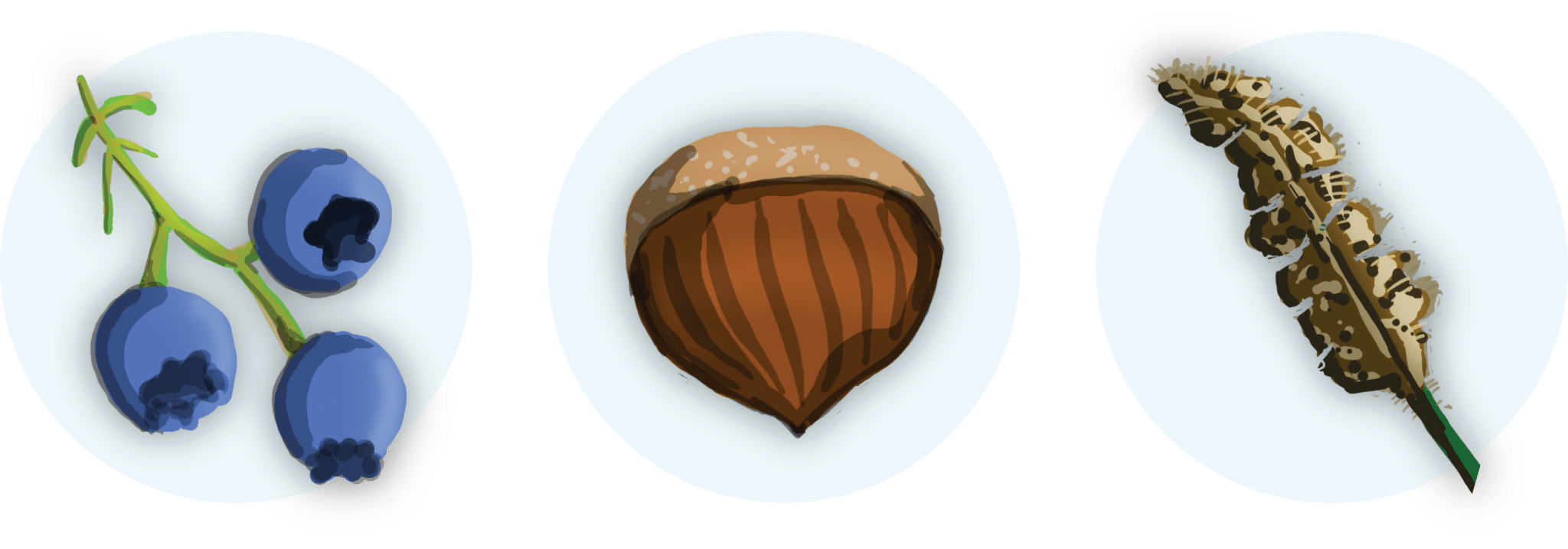
A few of a Black Bear’s favorite foods
Sometimes that’s meat. But they also eat plants! That’s what makes them omnivores. Here are some of their favorites:
- Fish
- Fruit
- Nuts
- Grass
- Plants
- Honey
- Berries
- Bugs & Larvae
- Small mammals
- Leftover carcasses
More than anything, it’s important to note that black bears aren’t really hunters by nature. They don’t usually stalk live prey like wildcats. They spend their days using a keen sense of smell to find food that’s just waiting to be eaten. We all know how legendary a bloodhound’s sense of smell is. Well a bear can smell about 7x better than that! That’s a powerful nose.
Black Bears Are Scavengers
Sniffing out ripe berries, decaying leftovers from other predators, and wriggling larvae buried in dirt is what most bears enjoy in the wild. But when people either extend their developments into bear country or adventure into it for the weekend, they often bring some tantalizing smells of their own. What’s worse is that sometimes these smells prove to be easier to find and result in higher payoffs than natural scents.
Think about it.
In contrast, a hundred miles away another follows his nose to an unattended campsite. Playful shrieks from the nearby lake doesn’t deter him from lumbering up to the picnic table. Burgers? Chips? Chocolate chunk oatmeal cookies? Holy smokes, It’s a feast! He devours everything he sees on the table. Then he finds the cooler and tips it over to get at tomorrow’s lunch too. By the time he wanders off into the woods he’s satisfied and ready for a nap. And he makes a mental note of the location as a great spot to revisit.
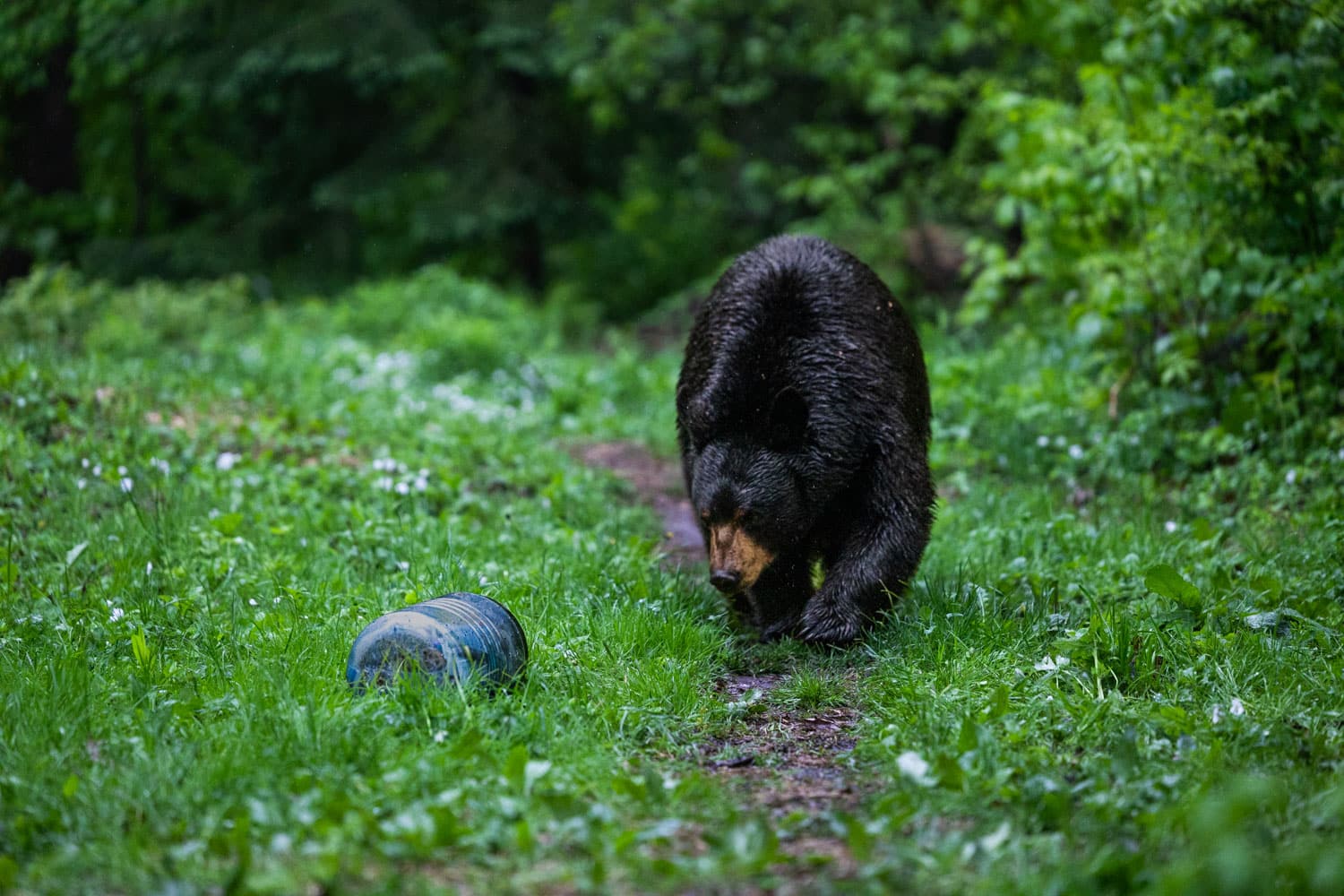
If it’s a strong scent for you, just imagine what it smells like to a bear. There are plenty of things we don’t even think about that will grab a bear’s attention. He can smell the leftover scent on your empty wrappers! Here are some things that commonly draw bears towards people.
- Garbage cans
- Outdoor cooking
- Bear bag contents
- Bear canister contents
- Dog and cat food bowls
- Scraps on the ground
- Camp trash cans
- Compost piles
Each of these items pose a potential risk to both humans and animals. If the bear is able to access the attractant that’s drawn it in, it will inevitably learn to keep following its nose to these particular smells. It can even become accustomed to visiting the location over and over for an easy meal.
Whenever that happens, the bear becomes ‘food conditioned’. It almost always ends badly for the bear and also poses a risk to the people around.
How to Keep Bears Wild and Eating Their Natural Diet
People can play a key role in making sure bears stay wild and don’t start looking to them for sustenance. Whatever your situation, you can do your part.
When You Live in Black Bear Country
If you’ve got a cabin up in the Rocky Mountains or live in a quaint neighborhood at the foot of the Smokies, it’s likely that there are sometimes bears within sniffing distance of your home. You can’t stop them from smelling you. But you can stop them from associating your smells with easy food.
That powerful nose is the key reason that black bears may find themselves drawn to situations that involve human contact. It’s believed that they can detect scented particles in the air from miles away. They don’t have to be looking for food to find food… the smells find them!
- Make sure your trash cans are either stored inside or bear proof. Consider purchasing special bear proof trash cans if you don’t have room in your garage to keep your trash safe until garbage day. There are also special garages for your city-issued garbage cans.
- When composting, use 3x as many brown materials as green to speed up the process and minimize fragrances. Consider a hard-sided tumbler vs an open pile. If an open pile is your best option, use a hot wire to keep bears out.
- Keep bear spray handy during cookouts. If you have a visitor, you don’t want to retreat inside and let it chow down on burgers and brats!
- Refrain from free feeding pets outdoors. Either bring them inside for meals or only put out what they will consume quickly. Store pet food indoors or in bear proof containers.
- Consider installing an electric fence around natural food sources such as backyard gardens, fruit trees, and hives.
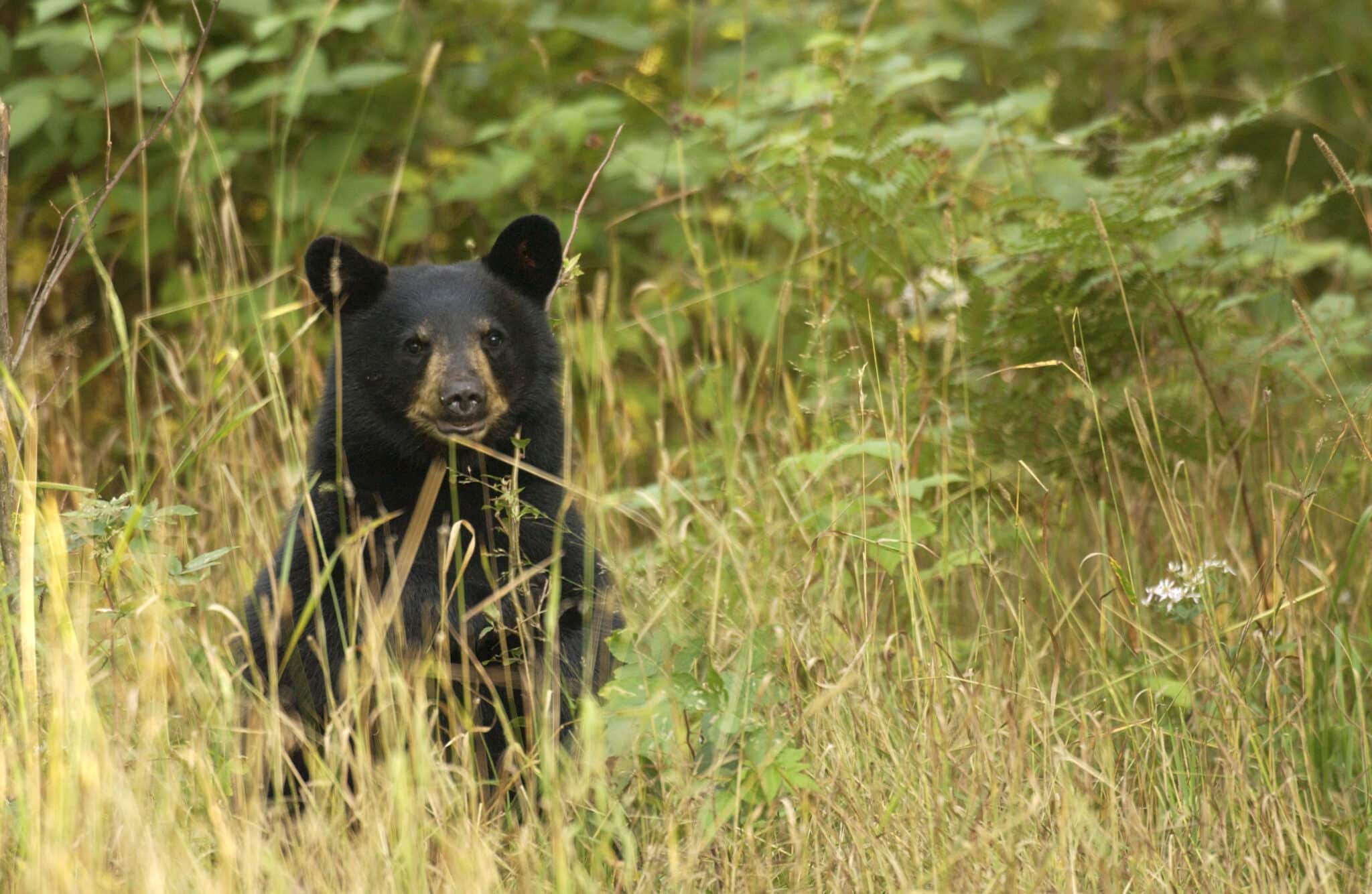
When You Visit Black Bear Country
Black bears enjoy a lot of beautiful territory that’s highly valued for its recreational opportunities. Whether you’re car camping, backpacking, or just crashing by a lake on a hot summer day, it’s important to remember that you’re in their backyard now. Here are some key ways you can minimize the opportunity for black bears to add your snacks to their menu.
- Never leave food unattended unless locked in a bear proof container. If you think you might go for a dip, lock the picnic bag in the car until it’s time to eat. If you’re headed to the backcountry for the weekend, use a BearVault to ensure food security.
- Unless there’s a bear proof trash can available onsite, pack out scraps and wrappers. Even the best protected food during a camping trip can become a problem if pieces are left behind at your sight! Future campers and bears themselves would take the brunt of the consequences. Remember, food storage lockers aren’t trash cans! If you pack it in, plan to pack it out.
- If you’re camping, store food and other aromatics away from where you sleep. This includes things like toothpaste and deodorant!
- Keep bear spray handy when preparing and consuming your food. You don’t want to lose your lunch to a hungry black bear! He doesn’t know it, but he doesn’t really want your lunch either. Taking it from you will inevitably do him a lot more harm than good, potentially even resulting in his death. Keeping him away protects both of you!
- Never feed a bear or other wildlife, no matter how cute or hungry they may look…
Knowing what black bears eat is useful knowledge
It’s about more than just having some great trivia to pass on to your kids or pull out during a dry conversation. Knowing what black bears eat can mean knowing where to not set up your tent. It can make you proactive about protecting your scraps and attractants. It may even save your breakfast.
But most importantly, it can help you live in harmony with the wildlife around you. Whether it’s in your daily life, weekend excursions, or lengthy backcountry hikes, respecting the black bears and their diets will preserve our wild places. Minimizing human-bear conflicts doesn’t just protect you. It protects the bears and it protects next year’s outdoorists and generations to come.
Use the power of your knowledge to keep our wild places wild!
Author Profile

Jessica Cockroft
Jess merges her passion for words and an insatiable longing for adventure as an outdoor freelance content writer and marketer. When she’s not busy stringing words together you’ll probably find her planning another camping trip for her crew of kids or taking care of the homestead. You can find her on LinkedIn and Instagram, as well as on her own website.

